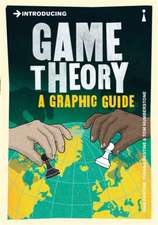e-Democracy: A Group Decision and Negotiation Perspective: Advances in Group Decision and Negotiation, cartea 5
Editat de David Rios Insua, Simon Frenchen Limba Engleză Paperback – 7 noi 2012
This book delineates how this approach could be implemented. It addresses foundations, basic methodologies, potential implementation and applications, together with a thorough discussion of the many challenging issues.
This innovative text will be of interest to students, researchers and practitioners in the fields of e-government, e-democracy and e-participation and research in decision analysis, negotiation analysis and group decision support.
| Toate formatele și edițiile | Preț | Express |
|---|---|---|
| Paperback (1) | 790.95 lei 38-44 zile | |
| SPRINGER NETHERLANDS – 7 noi 2012 | 790.95 lei 38-44 zile | |
| Hardback (1) | 953.65 lei 6-8 săpt. | |
| SPRINGER NETHERLANDS – 14 sep 2010 | 953.65 lei 6-8 săpt. |
Preț: 790.95 lei
Preț vechi: 1040.73 lei
-24% Nou
Puncte Express: 1186
Preț estimativ în valută:
151.34€ • 158.02$ • 125.26£
151.34€ • 158.02$ • 125.26£
Carte tipărită la comandă
Livrare economică 01-07 aprilie
Preluare comenzi: 021 569.72.76
Specificații
ISBN-13: 9789400733244
ISBN-10: 9400733240
Pagini: 376
Ilustrații: XII, 364 p.
Dimensiuni: 155 x 235 x 20 mm
Greutate: 0.53 kg
Ediția:2010
Editura: SPRINGER NETHERLANDS
Colecția Springer
Seria Advances in Group Decision and Negotiation
Locul publicării:Dordrecht, Netherlands
ISBN-10: 9400733240
Pagini: 376
Ilustrații: XII, 364 p.
Dimensiuni: 155 x 235 x 20 mm
Greutate: 0.53 kg
Ediția:2010
Editura: SPRINGER NETHERLANDS
Colecția Springer
Seria Advances in Group Decision and Negotiation
Locul publicării:Dordrecht, Netherlands
Public țintă
ResearchCuprins
Political Bases.- e-Democracy: A Group Decision and Negotiation-Oriented Overview.- Concepts in Democratic Theory.- Participatory Processes and Instruments.- Methodological Bases.- Problem-Structuring Methods for e-Democracy.- Decision Support Systems.- Collaborative Decision Analysis and e-Democracy.- Voting Theory.- Real-World Decision Aiding: A Case in Participatory Water Management.- Technological Bases.- The Internet and the Web.- e-Participation: A Discursive Approach.- e-Negotiation Systems for e-Participation.- Web-Based Decision Support: Creating a Culture of Applying Multi-criteria Decision Analysis and Web-Supported Participation in Environmental Decision Making.- A Generic System for Remote e-Voting Management.- Explanation Systems.- Case Studies.- Transparent Public Decision Making: Discussion and Case Study in Sweden.- From Participatory to e-Participatory Budgets.- Internet Voting in Estonia.- Consensus Building by Blended Participation in a Local Planning Process: The Case of the Public Stadium Swimming Pool in Bremen.- Future Prospects.- e-Democracy: The Road Ahead.
Notă biografică
David Rios Insua is Professor of Statistics and Operation Research and Vicerector at Rey Juan Carlos University. He has previously been resercher or lecturer at Madrikd Techn. University, Purdue, Duke, IIASA and CNR-IMATI. He is the youngest member of the Spanish Royal Academy of Sciences. He has chaired the e-democracy programmes of the European Science Foundation and the Government of Madrid. He has ten books and nearly eighty refereed papers under his name. His current interests are in group decision support over the web, e-participation and Bayesian Analysis of stochastic processes.
Simon French is Professor of Information and Decision Sciences at Manchester Business School in the University of Manchester. He was previously Professor of Information Systems and Operational Research at the University of Leeds. He has an international reputation in decision theory, analysis and support systems, risk assessment and Bayesian statistics. He has over 120 publications to his name, including three standard texts on decision theory, and was from 1990 to 2000 founding editor of the Journal of Multi-Criteria Decision Analysis. In all his work the emphasis is on multi-disciplinary approaches to solving real problems and the innovative use of technology in supporting decision making. Currently he is working on e-democracy and e-participation. He was a member of the European Science Foundation's Towards Electronic Democracy programme and is part of a major research project, funded under the UK Research Councils Rural Economy and Land Use Programme, into public and stakeholder participation into the handling of food chain issues in the rural economy.
Simon French is Professor of Information and Decision Sciences at Manchester Business School in the University of Manchester. He was previously Professor of Information Systems and Operational Research at the University of Leeds. He has an international reputation in decision theory, analysis and support systems, risk assessment and Bayesian statistics. He has over 120 publications to his name, including three standard texts on decision theory, and was from 1990 to 2000 founding editor of the Journal of Multi-Criteria Decision Analysis. In all his work the emphasis is on multi-disciplinary approaches to solving real problems and the innovative use of technology in supporting decision making. Currently he is working on e-democracy and e-participation. He was a member of the European Science Foundation's Towards Electronic Democracy programme and is part of a major research project, funded under the UK Research Councils Rural Economy and Land Use Programme, into public and stakeholder participation into the handling of food chain issues in the rural economy.
Textul de pe ultima copertă
Web-based interactions to support participation and deliberative democracy, called e-participation and e-democracy, are coming and coming fast. In some instances, the Internet is already permeating politics. However, it is far from clear if the processes involved in these interactions are meaningful and valid, and most of the research in the field has focused largely on the technologies to facilitate or automate the standard democratic instruments involved, such as e-voting or e-debating. This book, though, uses the point of view of the Group Decision and Negotiation approach to thoroughly discuss how web-based decision support tools can be used for public policy decision making.e-Democracy is structured into five main parts. The first part places democracy in context and reviews participatory instruments already in use in the physical world. The second part reviews methodologies that may be used to support groups in public policy decision making with a view on discussing how they may be used in the virtual world. The third part reviews tools already available on the web to support public policy decision making, such as debating, negotiating, voting and supporting decisions; it also identifies their various strengths and weaknesses. The fourth part includes a number of recent case studies, and the final part identifies challenges ahead.Complete with a comprehensive bibliography, this first comprehensive review of e-participation and e-democracy is intended for students, researchers and practitioners in the field as well as researchers in Decision Analysis, Negotiation Analysis and Group Decision Support.
Caracteristici
Provides the first comprehensive review of e-participation and e-democracy Stresses transforming rather than facilitating political modes Presents a balanced view from political, IT and decision support perspectives Includes relevant case studies Includes a comprehensive bibliography






















